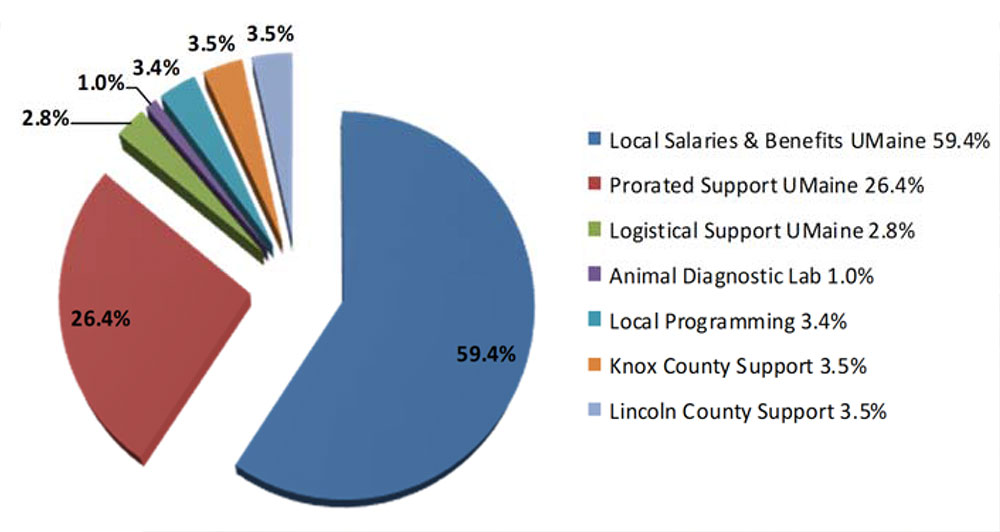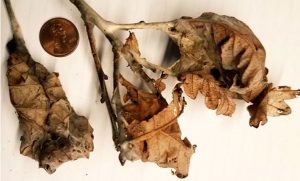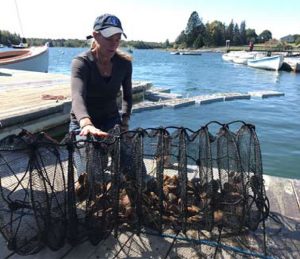2019 Annual Report
University of Maine Cooperative Extension Knox and Lincoln Counties
Putting university research to work in homes, businesses, farms, and communities for over 100 years.
The University of Maine is an equal opportunity / affirmative action institution.
Download a print-friendly copy of the 2019 Annual Report (PDF).
Table of Contents
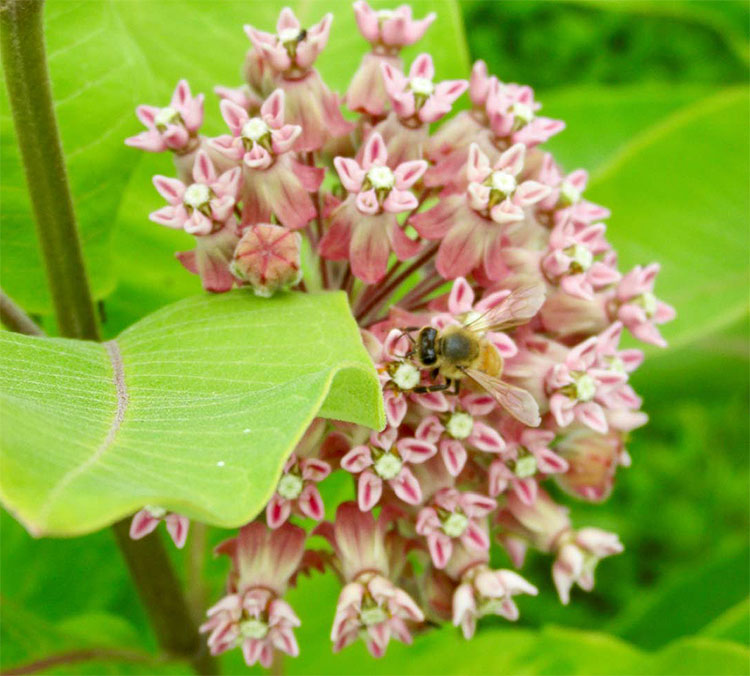
- Knox-Lincoln County Extension Association
- UMaine Extension Knox-Lincoln Counties Staff
- University of Maine Cooperative Extension seeks volunteers to serve on the Knox-Lincoln Counties Executive Committee
- President’s Message
- UMaine Extension Knox-Lincoln Counties Financial Resources
- 4-H Youth Development
- Parent Education
- Home Horticulture
- Commercial Agriculture
- Climate Change
- Alliance for Maine’s Marine Economy
- The County Extension Act
Knox-Lincoln County Extension Association
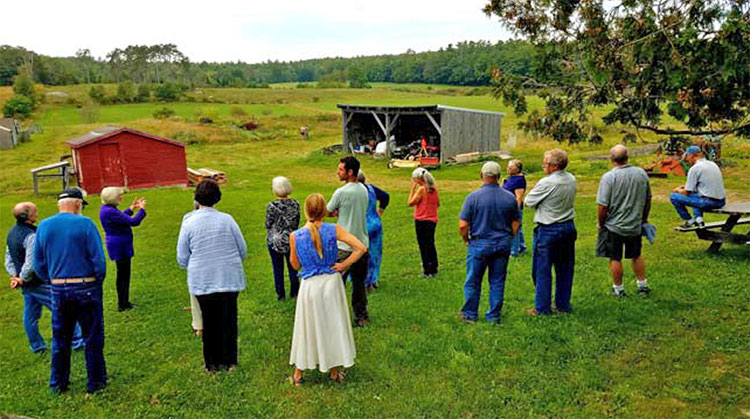
Executive Committee
- Linda Bonin, President
- Aaron Englander, Secretary
- Jack Green, Treasurer
- Frank Braun
- Craig Currie
- Wendy Roberts
- Gail Varga
- Brett Willard
UMaine Extension Knox-Lincoln Counties
377 Manktown Road
Waldoboro, ME 04572-5815
207.832.0343 or 800.244.2104 (in Maine)
Fax: 207.832.0377
extension.knoxlincoln@maine.edu
UMaine Extension Knox-Lincoln Counties Staff
Extension Educators
- Mark Hutchinson
- Esperanza Stancioff
Professionals
- Marylou Cook
- Jennifer Doherty
- Heather Elowe
- Gretchen Gee
- Ruth Griffin
- Kathryn Jensen
- Keri Kaczor
- Rebecca Koller
- Brooke Sanborn
- Claudia Williamson
Community Education Assistants
- Cindy Rogers
- Liz Stanley
Administrative Specialists
- Pamela Doherty
- Cindi Staples

University of Maine Cooperative Extension seeks volunteers to serve on the Knox-Lincoln Counties Executive Committee
UMaine Extension can only be successful with the help of county residents serving on the Executive Committee. Board members provide oversight and support to staff, as well as help promoting programs.
Knox-Lincoln Extension is one of the most active in the state providing a broad range of programs: 4-H youth development, farm-to-school programs educating kids on healthy food choices, assistance to commercial farmers and home gardeners, support for fishermen facing impacts due to warming temperatures in the Gulf of Maine, and in-home education for new parents.
Executive Committee members are asked to attend four two-hour meetings a year focusing on county programming, building maintenance, and finances. Members can certainly follow their interests and become more involved in any of the county programs.
If you’re interested in UMaine Extension Programs and giving back to your community, serving on the Executive Committee is a great place to be! For more information, please contact Esperanza Stancioff 207.832.0343, in Maine 800.244.2104 or email: esp@maine.edu
President’s Message
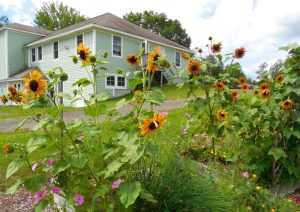
The University of Maine Cooperative Extension in Knox and Lincoln Counties continues to provide its many and diverse community research, education, and outreach programs. These include 4-H youth development, comprehensive parenting education in infant care, research and education regarding climate change, home horticulture, as well as commercial agriculture programs, and participation in the Alliance for Maine’s Marine Economy.
How are these programs supported? The University of Maine funds the salaries of UMaine Extension’s professionals, researchers, and educators. Local taxes fund the facility itself, as well as salaries for support staff. All programs are enhanced by the efforts of hundreds of volunteers from both Knox and Lincoln Counties.
The Knox-Lincoln Cooperative Extension Association (KLCEA) Executive Committee provides oversight for educational programming and budgetary issues; its subcommittees look after our building and support Extension’s vision and programs, including the annual meeting held each year in the fall. We are truly grateful for all the participants in this complex and effective collaborative effort. The Executive Committee welcomes volunteers from Knox and Lincoln Counties. We hope you might be interested in being a part of this incredible community service endeavor. Please contact the Extension office if you would like to join our Executive Committee team.
— Linda Bonin, KLCEA Executive Committee President
UMaine Extension Knox-Lincoln Counties Financial Resources
The graph below illustrates the financial resources for programs offered, supported, and managed from the Knox and Lincoln Counties office. Each year, Knox and Lincoln Counties’ tax dollars support UMaine Extension with physical office space, support staff salaries, office supplies, equipment, and programming expenses.
As a unique partnership among federal, state, and county governments, UMaine Extension uses funding from Maine counties and the University to match and leverage support from the United States Department of Agriculture, other federal grantors, state agencies, and private foundations. Each UMaine Extension county office is also part of a statewide organization and the national Extension system.
4-H Youth Development

- A total of 2,353 youth, adults, and families received free hands-on 4-H educational programming in Knox-Lincoln Counties in 2019!
- A record 1,807 members of the public were educated about agriculture in Maine through the 4-H Farm-to-Fair Exhibit at the Union Fair. 110 volunteers from local businesses and community organizations supported the exhibit. The F2F Youth Helper Scholarship program provided four youth leaders for the exhibit, in exchange for supporting them to attend 4-H Citizenship Washington Focus, a citizenship and leadership learning program based at the National 4-H Center in Chevy Chase, Maryland.
- 546 youth were served directly through 4-H programs in clubs, afterschool and library programs, including enrolled and non enrolled participants.
- 477 youth ages 5-18 received free, hands-on educational programming in Science, Technology, Engineering, Art, and Math via afterschool and summer programs in collaboration with schools, libraries, and youth non-profit programs, with the most intense focus placed on vegetable gardening and ecology.
- 69 enrolled youth members and 38 enrolled adult volunteers comprise six traditional 4-H clubs, as well as independently enrolled individuals. Project areas ranged from industrial arts to child development to livestock.
- Partnerships include schools: Vinalhaven, South Elementary (Rockland), Cushing Community, Whitefield Elementary, Prescott Memorial (Washington); libraries: Vose, Cushing, Rockland, Gibbs, Skidompha; and organizations: The Landing Place, Maine Coast Heritage Trust, CLC YMCA.
Information: kathryn.a.jensen@maine.edu
Parent Education
Maine Families Home Visiting Program

- 7 Parent Educators with a combined total of 88.5 years of experience offered the Maine Families Home Visiting Program to local families who were pregnant or had a new baby at home.
- Utilizing the evidence-based Parents As Teachers™ Model, our team provided research-based information and caring support to fit each family’s needs and concerns, supporting parents in their role as their child’s first and most important teacher.
- 200 families were served in Knox, Lincoln, and Sagadahoc Counties.
- 1,947 home visits were provided.
- 12 group connections were offered in the community.
- 100% of families who completed our annual parent survey reported Maine Families helped them understand their child’s growth and development, and 97% feel better about their parenting.
Information: jennifer.d.doherty@maine.edu
Home Horticulture
The Master Gardener Volunteer Program
- 60 hours of training in the art & science of horticulture.
- Participants volunteer on projects addressing food security and environmentally sustainable horticulture.
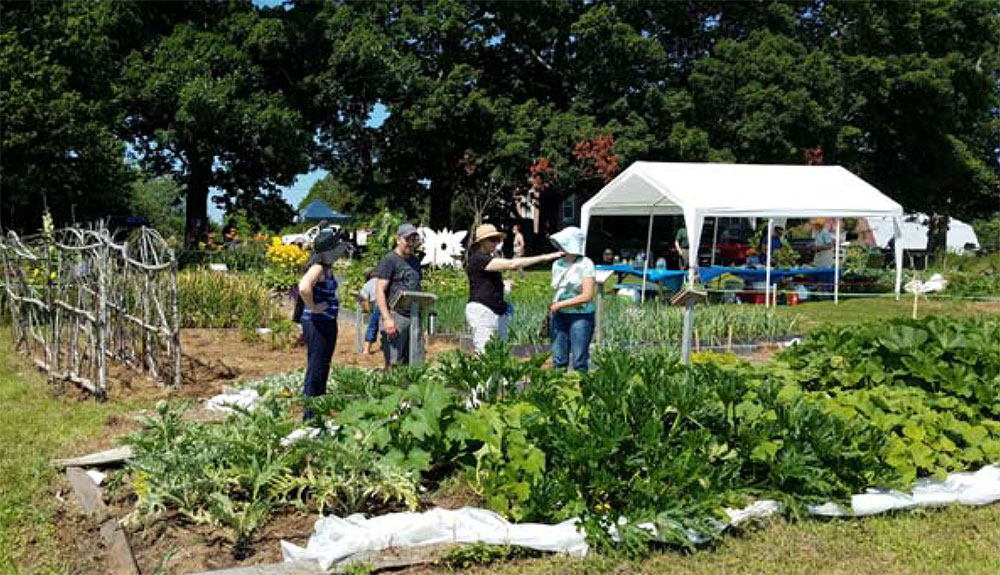
Horticulture
- Helping home, school, and community gardeners with growing questions and pest, disease, and invasive species management.
- Monarch butterfly on Joe-Pye weed. Photo by Liz Stanley.
- Browntail moth nests with overwintering caterpillars. Photo by Liz Stanley.
Resources for Gardeners
- UMaine Extension’s Garden & Yard website
- Maine Harvest for Hunger
- Maine School Garden Network
- Maine YardScaping
Information: elizabeth.stanley@maine.edu
Commercial Agriculture
Two research and education projects to support small commercial agriculture were completed in 2019. Multi-regional risk analysis of farm manure use: Balancing soil health and food safety for organic fresh produce production Organic Research and Extension Initiative Funding $1,999,998. This is a collaboration with University of California, Davis, University of Minnesota, USDA, and University of Maine Cooperative Extension. Two of the four Maine project farms were located in Knox and Lincoln counties.
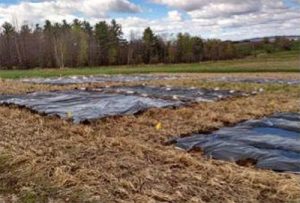 Farmer-Designed Systems to Reduce Tillage in Organic Vegetables was initiated in 2015 and completed in 2019. Funding for this project was provided by OREI ($1.999,750). This was a collaboration between Cornell University, Michigan State University, and University of Maine Cooperative Extension. Reduced tillage strategies included permanent beds, straw and compost mulch, and tarping. Tarping was determined to reduce the need for tillage over 4 years.
Farmer-Designed Systems to Reduce Tillage in Organic Vegetables was initiated in 2015 and completed in 2019. Funding for this project was provided by OREI ($1.999,750). This was a collaboration between Cornell University, Michigan State University, and University of Maine Cooperative Extension. Reduced tillage strategies included permanent beds, straw and compost mulch, and tarping. Tarping was determined to reduce the need for tillage over 4 years.
Information: mhutch@maine.edu
Climate Change
Signs of the Seasons: A New England Phenology Program provides an opportunity for citizens to contribute to science and improve their climate literacy through making observations of common indicator species such as American robins, monarch butterflies, loons, sugar maples, wood frogs and 17 others to choose from! Using their backyards as laboratories, citizen scientists record information about the occurrence of leaf-out, flowering, nest building, migration, and other life cycle events. Data collected through Signs of the Seasons is used by researchers and managers to better understand how a changing climate will impact species commonly found in New England. Now in our 10th season, and during the Covid-19 Pandemic, we have developed and recorded three online training sessions so volunteers can get outside, make observations and contribute data while watching the progression of Spring.
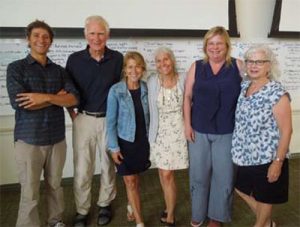
Our Maine Ocean and Coastal Acidification Partnership gathered information and recommendations that reflect the ongoing work of MOCA’s voluntary network of more than 220 people which includes input received during three stakeholder meetings held in July 2019. Each was attended by 20-25 experts, with participants matched in the three separate meetings to the themes of Research and Monitoring, Policy and Law, and Resilience and Adaptation. Participants in these sessions brought years of experience working on ocean climate change and ocean acidification for which the MOCA steering committee developed two reports containing information and recommendations submitted to and incorporated into the Maine Climate Council to assist in negotiating pathways to climate success.
Information: esp@maine.edu
Alliance for Maine’s Marine Economy
The Alliance for Maine’s Marine Economy (Alliance) is a responsive network of companies, organizations, and individuals dedicated to the growth of a vibrant marine economy for Maine. We are committed to the idea that “a rising tide lifts all boats,” and together, we accomplish more than any single organization can carry forward on its own.
Coordinated by Maine Sea Grant, the Alliance network formed in 2016 around a state-sponsored, citizens’ marine-bond initiative (seven million dollars in public funds administered by Maine Technology Institute, plus more than seven million dollars in initial private investments).
From Saco to Machiasport, 17 investments are enabling essential infrastructure, capital equipment, innovative technologies, and workforce development that are transforming Maine’s seafood economy. Six of those projects are located in Knox and Lincoln Counties.
In 2019, Alliance members shared their knowledge and innovations during an industry field trip to Mook Sea Farm’s state-of-the-art oyster hatchery and oyster holding facility in Walpole, as well as a trip to Port Clyde and Tenants Harbor where participants learned about the challenges and opportunities facing local ground fishermen, as well as new projects and partnerships driving economic activity to the shore.
- The Alliance investment in Tenant’s Harbor has created a new product, live farmed scallops, and developed a new source of income for local fishermen, resulting in approximately $3,000 in 2019, the pilot year of the project. Photo by Kathy Tenga-Gonzales.
The County Extension Act
The County Extension Act explains the role of county government in funding local Extension offices.
Cooperative Extension work shall consist of the giving of practical demonstrations in agriculture and natural resources, youth development, and home economics and community life and imparting information on those subjects through field demonstrations, publications, and otherwise. For the purpose of carrying out this chapter, there may be created in each county or combination of two counties within the State an organization known as a “county extension association,” and its services available to all residents of a county. The county extension is viewed as a unique and important educational program of county government. The executive committee of each county extension association shall prepare an annual budget as requested, showing in detail its estimate of the amount of money to be expended under this chapter within the county or counties for the fiscal year. The executive committee shall submit to the board of county commissioners on a date requested by the county commissioners, and the county commissioners may, if they deem it justifiable, adopt an appropriate budget for the county extension program and levy a tax therefore. The amount thus raised by direct taxation within any county or combination of counties for the purposes of this chapter shall be used for the salaries of clerks, provision of office space, supplies, equipment, postage, telephone, a contribution toward the salaries of county educators and such other expenses as necessary to maintain an effective county extension program.1
1Excerpted from Title 7, Chapter 7 of the Maine Revised Statutes, §191–§195.
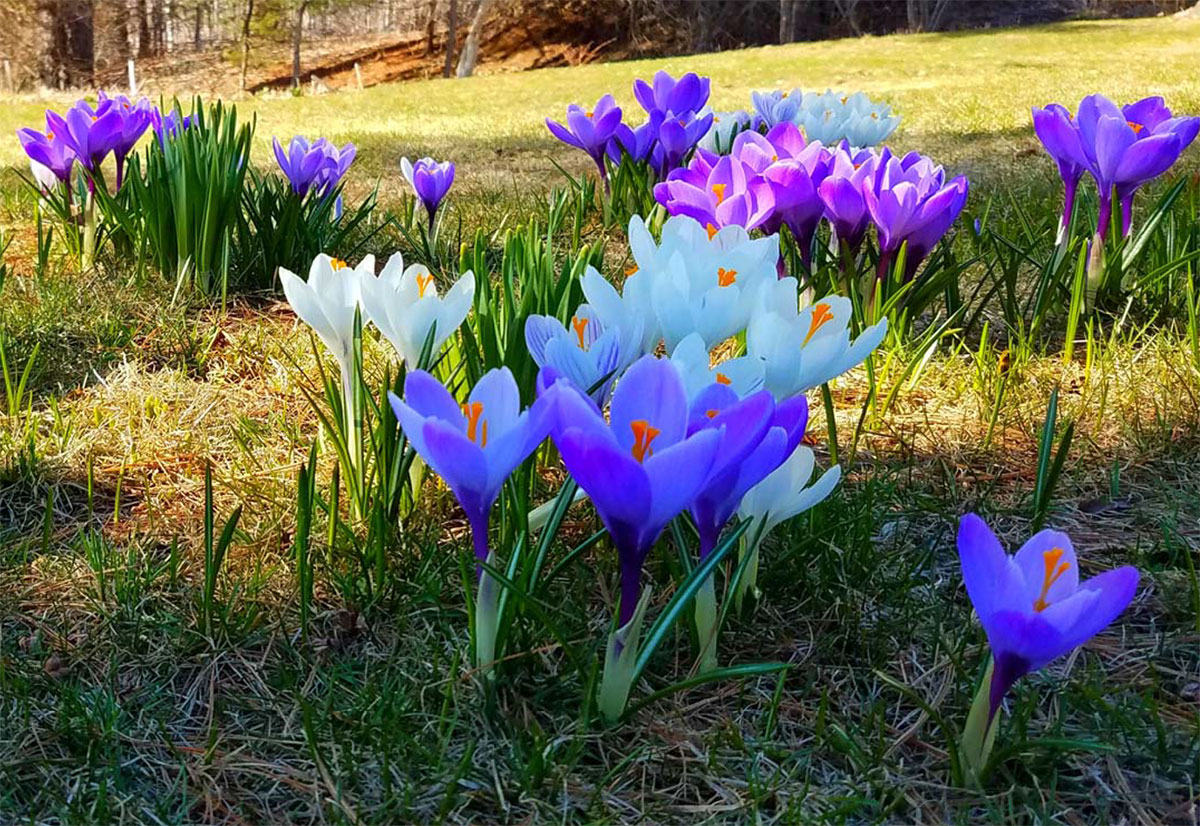
University of Maine Cooperative Extension’s successful educational programs result from a federal, state, and county government partnership. Since 1919, when the Maine Legislature passed the County Extension Act, the University of Maine has been in all Maine communities with a county office whose operations are funded by county government. Our educational programs anticipate and respond to local and state needs and issues. We also communicate those issues and opportunities to UMaine faculty to influence their research and development plans.
©2020
The University of Maine Cooperative Extension Knox-Lincoln Counties office is an EEO/AA employer, and does not discriminate on the grounds of race, color, religion, sex, sexual orientation, transgender status, gender expression, national origin, citizenship status, age, disability, genetic information or veteran’s status in employment, education, and all other programs and activities. The following person has been designated to handle inquiries regarding non-discrimination policies: Director of Equal Opportunity, 101 North Stevens Hall, University of Maine, Orono, ME 04469-5754, 207.581.1226, TTY 711 (Maine Relay System).
University of Maine Cooperative Extension COVID-19 Health and Safety Guidance |

